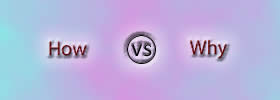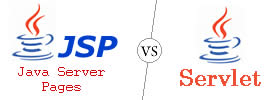Difference between Journal and Magazine
Key difference: Magazines are popular periodicals that are published for the entertainment of people. They may contain number fluff pieces, general knowledge articles, celebrity news and gossip, etc. Journals are serious, scholarly publications that cover an entire industry or a specific area of science and education. They often contain original research or papers published by notable peers in that specific industry.
 Journals and magazines are two different types of periodicals. Periodicals are literature that is published on a schedule to fulfill various different purposes. Magazines are popular periodicals that are published for the entertainment of people. They may contain number fluff pieces, general knowledge articles, celebrity news and gossip, etc. They are usually published weekly or monthly. They are generally financed by advertising, by a purchase price, by pre-paid magazine subscriptions, or all three.
Journals and magazines are two different types of periodicals. Periodicals are literature that is published on a schedule to fulfill various different purposes. Magazines are popular periodicals that are published for the entertainment of people. They may contain number fluff pieces, general knowledge articles, celebrity news and gossip, etc. They are usually published weekly or monthly. They are generally financed by advertising, by a purchase price, by pre-paid magazine subscriptions, or all three.
 Journals have a bigger scope than magazines. Journals may refer to scholarly journals, academic journals, a personal journal (which details one’s own research), etc. However, in common parlance, we use the term journals to refer to scholarly journals and/or academic journals.
Journals have a bigger scope than magazines. Journals may refer to scholarly journals, academic journals, a personal journal (which details one’s own research), etc. However, in common parlance, we use the term journals to refer to scholarly journals and/or academic journals.
These journals are serious, scholarly publications that cover an entire industry or a specific area of science and education. They are often published weekly, monthly, or even yearly. They often contain original research or papers published by notable peers in that specific industry. This research or papers are often peer-reviewed, where other peers in that industry scrutiny the data to ensure that the information is not fraudulent or incorrect. These journals are generally financed by the industry itself or an institution.
Various differences between general magazines and journals:
|
|
Journal |
Magazine |
|
Appearance |
Sober and serious May contain graphs or charts to supplement research Will not find glossy pages or photographs
|
Attractive appearance Advertisements Heavily illustrated Glossy paper |
|
Purpose |
Academic sharing of knowledge, peer commendation |
Entertainment, may include general knowledge |
|
Content |
Contains detailed report or original research or experiment. |
Contains secondary report or discussion; may include personal narrative, opinion, anecdotes |
|
Audience |
Aimed at scholars, researchers, and students |
Aimed at general public |
|
Author |
Usually scholars or respected members of the academic community |
Anybody can submit an article, depending on the content of the article. |
|
Language |
Academic, will probably have specialized terminology or jargons |
Layman, for general public |
|
Bibliography & References |
Must be provided |
May or may not be provided |
|
Proofread |
Peer proofing where members of the community read and check the articles to ensure there are no mistakes in the article and no misrepresentation of the science involved. Detailed proof reading and fact checking. May even replicate experiments to ensure authencity. |
Will probably be proofread by a proofreader or an editor, who may or may not have previous knowledge on the subject of the article. General fact checking. |
|
Examples |
Journal of Education Finance, Annals of Mathematics, History of Education Quarterly, Harvard Business Review |
Time, Sports Illustrated, National Geographic, Newsweek, Ladies Home Journal, Discover |
Image Courtesy: hannanprint.com.au, rockapotomus.blogspot.com









Comments
ASHISH
Thu, 07/06/2017 - 06:00
Hi Ashish, you are right, they were replaced. Thank you for pointing it out. It has been replaced now.
dbadmin
Fri, 07/07/2017 - 11:25
Add new comment